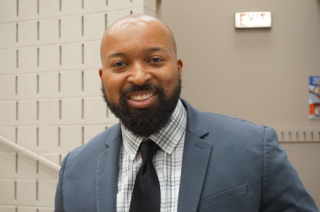1. What is your current role/title?
I currently serve as Vice President, Academic Affairs.
2. Where did you earn your degrees and what did you study?
Sociology – BS, University of Illinois – Urbana-Champaign,
Clinical Psychology – MA, Argosy University (American School of Professional Psychology) – Washington, DC,
Counseling Psychology – Ed.D, Argosy University (American School of Professional Psychology) – Washington, DC
3. How did your college/university support your success in earning your degrees?
Mentorship and socialization opportunities were essential to my development, growth, success. For minoritized students, mentoring is often considered a crucial resource to foster support systems of role models and to garner the academic success. At my undergraduate and graduate institutions, mentor groups, extended new student orientation for students of color, social organizations, and guidance counseling for undeclared majors provided structure and knowledge gaps in navigating a path for successful completion.
4. What excites you about equity work at your institution?
It is gratifying to empower students in reaching their full potential by removing barriers that have historically impacted minoritized students. At Olive-Harvey College, we use a high-touch approach to engage every student to meet their needs to ensure success and completion for all students seeking a credential.
5. In your role, how do you impact equitable outcomes for your students?
As Vice President of Olive-Harvey College, I am grounded in a person-centered and mission-driven approach, through a civic and equity lens. I am currently a member of the College’s Illinois Equity Attainment Committee and supporter of the College’s Equity Plan. The Plan details specific strategies to support academic success, social integration, and student completion. To support student completion efforts through equity, the College has developed tactics to refine classroom instruction, measuring learning, co-curricular learning, and civic. In my role, I am in support equity through the following:
-
Faculty development of culturally responsive pedagogy and teaching
-
Multiple measures of learning assessments and tests to align with student learning preferences through face-to-face and hybrid modes of instruction
-
Social integration and exploratory co-curricular opportunities through field and work-based learning experiences
-
Civic engagement through public service events and social justice support (i.e. voter registration, trash clean-up, and community townhalls)


